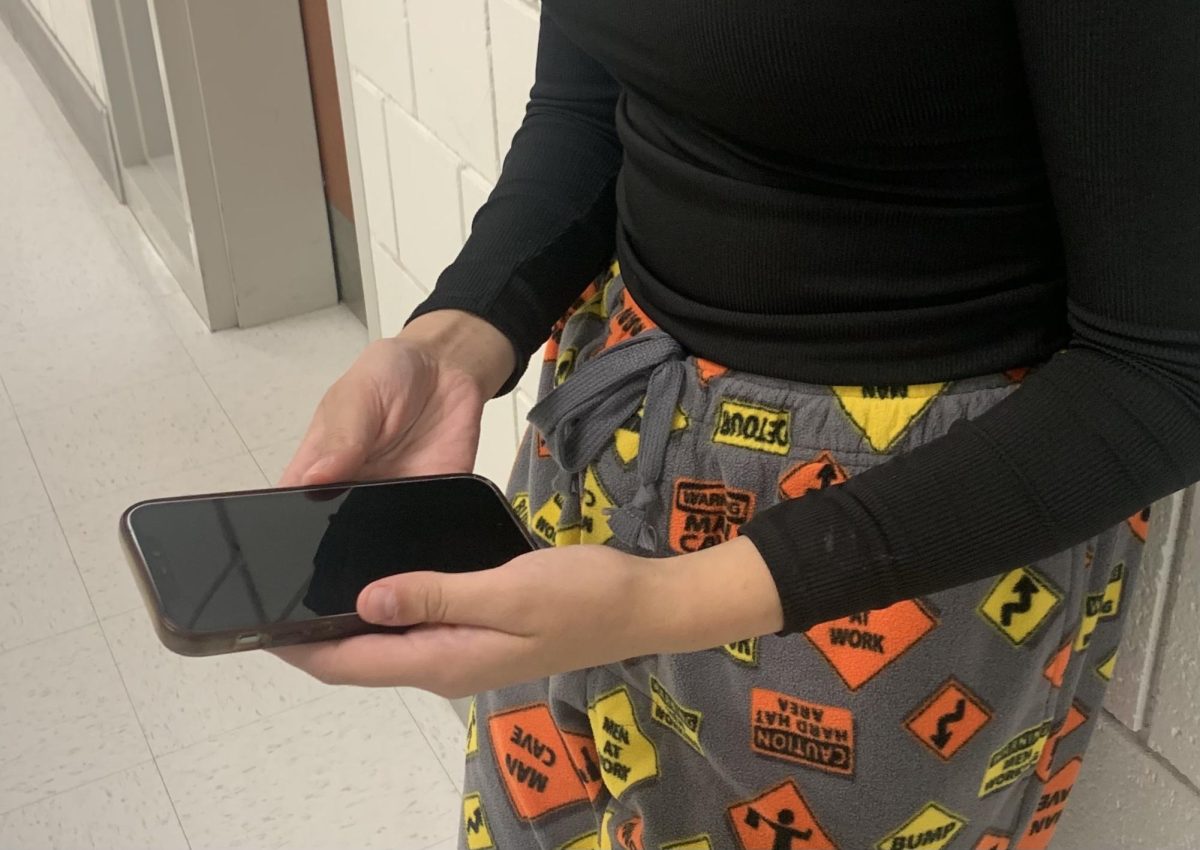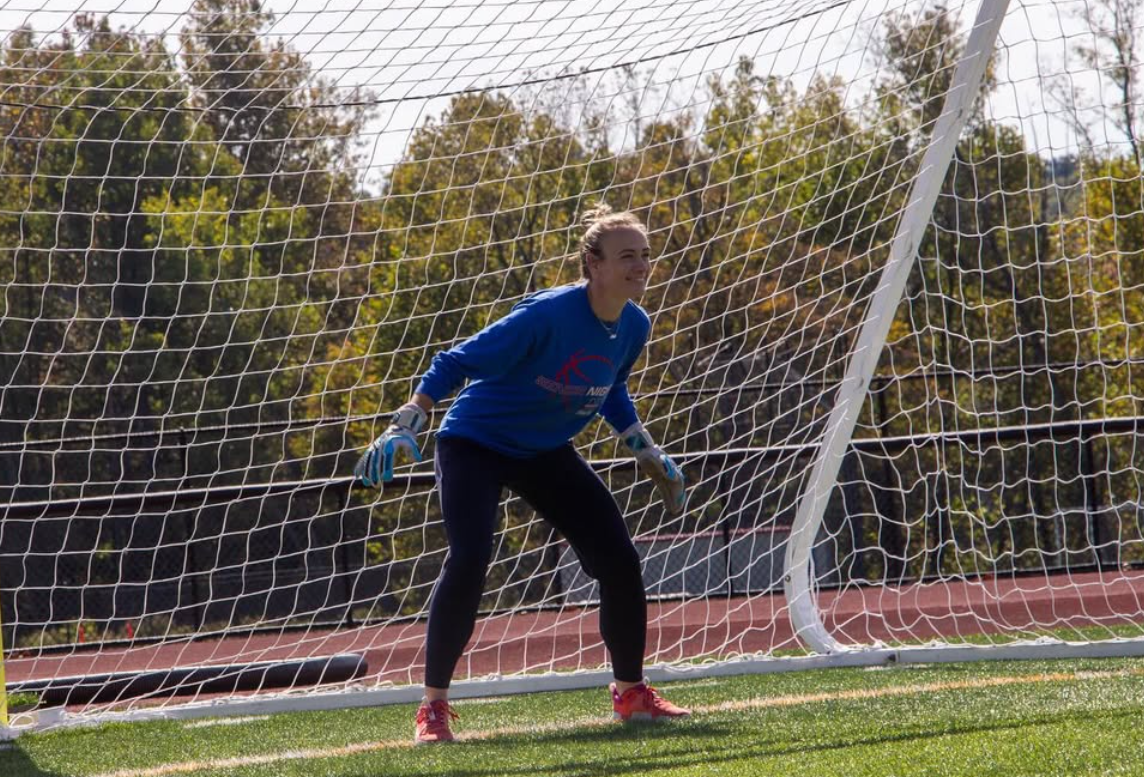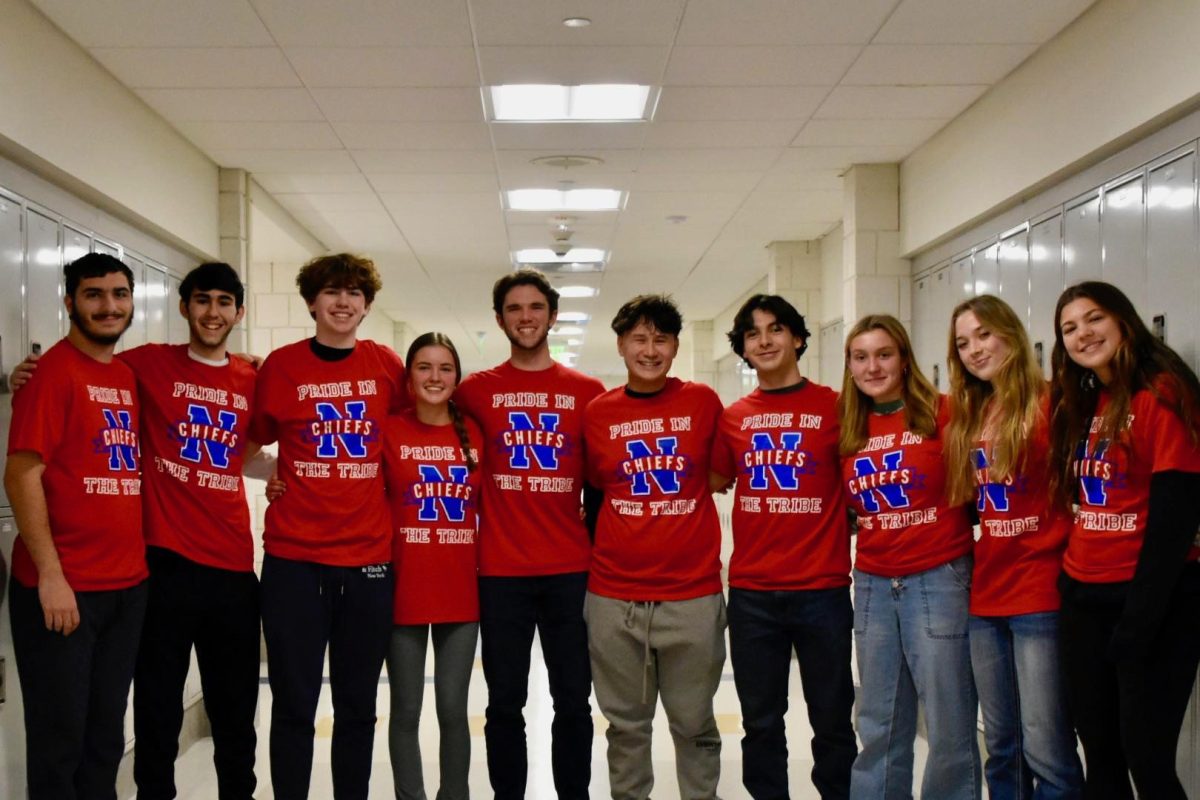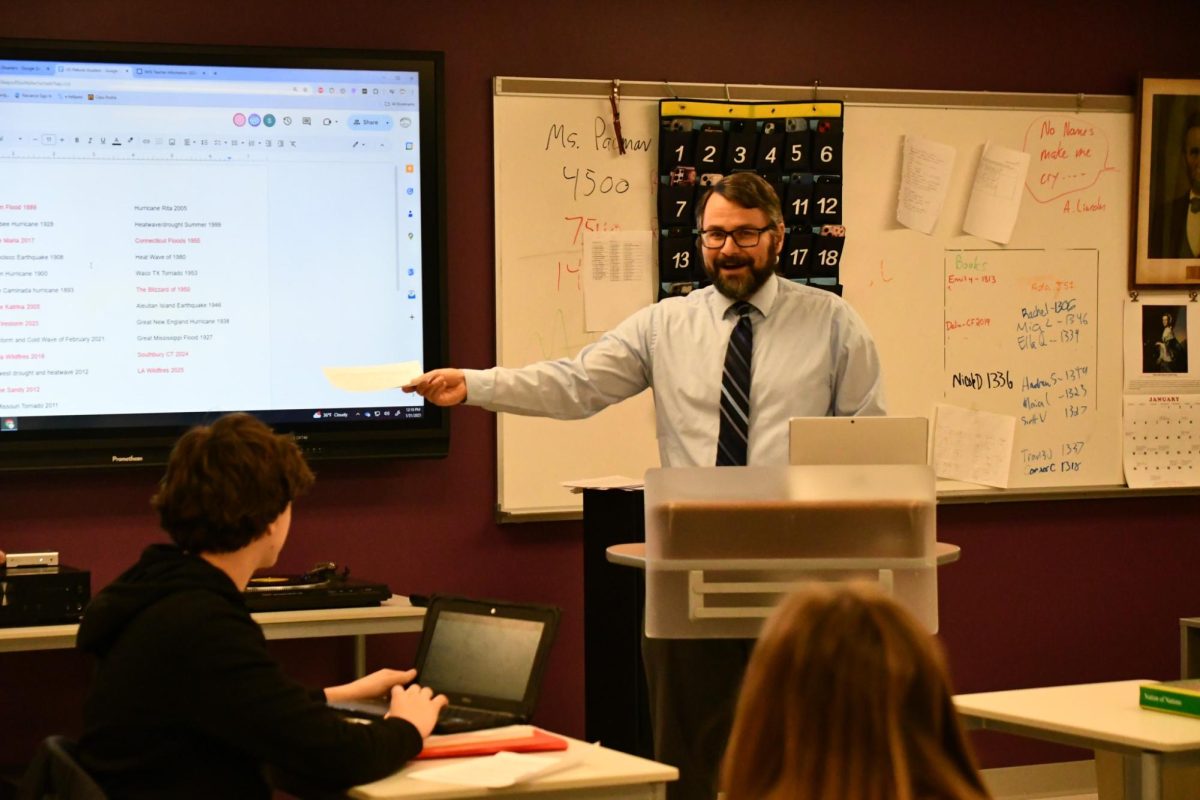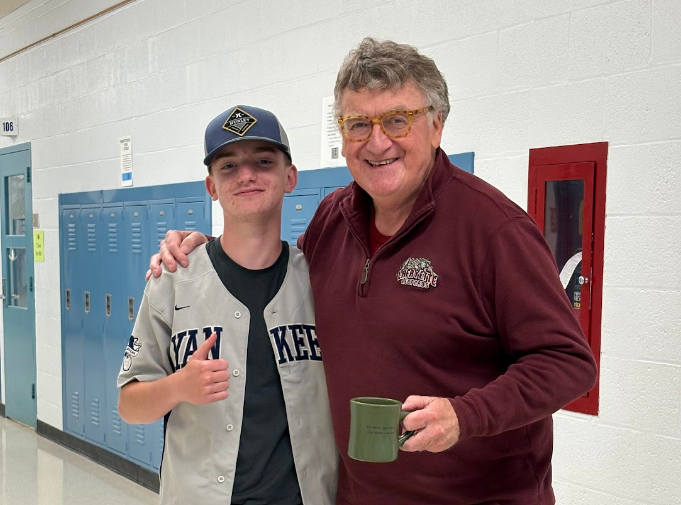WOODBURY – In Nonnewaug High School’s student handbook, bullying is defined as “[Any] means any overt acts by a student or a group of students directed against another student with the intent to ridicule, harass, humiliate or intimidate the other student while on school grounds, at a school-sponsored activity or on a school bus which acts are committed more than once against any student during the school year.”
People may believe that this is only an issue if on school grounds and in person. However, there is another statute for any types of bullying, such as cyberbullying, that is written into the handbook: “Bullying may also include acts that occur outside the school setting if such acts have a direct and negative impact on a student’s academic performance or safety in school.”
That means social media accounts can be considered bullying, even if it’s happening outside of school.
Nonnewaug school psychologist, Sarah Marshall, adds that these social media accounts affect students significantly.
“It depends on a case-by-case basis for these accounts to be considered bullying,” Marshall says. “There are things that are said that are not particularly significant, or not hurtful, they don’t necessarily rise to that degree of bullying. It really depends on what is posted, and maybe it was something, though it is still not OK, said out of anger or the heat of the moment, rather than something that has been brought forth in another way as well.”
Nonnewaug principal, Dr. Mykal Kuslis, says the school is painfully aware of some of the accounts that harbor the hate.
“We take it very seriously,” Kuslis said, “and if we find out that there is an account that has posted purposely mean things about people, and people refuse to be truthful with us, there has been some very severe punishments that are in line with our handbook, so like suspensions and referrals for expulsions.”
When administrators execute a plan of action in response to social media bullying, one aspect stands above the rest.
“For us it’s how much educational impact it has, from the student’s and the adult’s perspective,” he added.
Kuslis says that not just the content of individual social media posts needs to be taken into account, but other aspects of accounts can be wounding.
“I think the name of the account can be damaging, especially if the account is inappropriate and then a name shows up on it,” Kuslis said. “I think some accounts post pictures, which are really inappropriate; some accounts just post anonymous Google Form responses with people’s names, which again can be really scary because you don’t know where they’re coming from and you don’t necessarily know how they’re targeted.”
Not all forms of social media are bad for school climate, though. Nonnewaug has school-monitored accounts of clubs, sports, and other special activities, which Kuslis says can be beneficial to our community.
“I think the things we can do to highlight the things going on in the school are awesome,” Kuslis said, “[although] we’ve had some issues with some sports ones last school year who posted things that weren’t in good taste or displayed good sportsmanship, so we’ve asked people to take some of those down.”
When administrators are dealing with school-based accounts, they have control over specific situations. But addressing social media accounts made outside of school is more difficult.
“[This is] where we’ve struggled the most,” Kuslis said. “We’ve worked with Woodbury Police and with the Connecticut State Police; we’ve brought in outside agencies to give presentations and try to track down the people who run those accounts. Obviously there are some free speech rights around it, which becomes challenging. Again, the First Amendment does extend to speech that we might not agree with, that might be inappropriate, and it can become difficult when it becomes threatening, and that’s where we try to draw the line.”
There are other logistical issues, too.
“The other issue is that sometimes these accounts aren’t created by our students, or sometimes these accounts are created outside of state … [so] it becomes very difficult as a jurisdictional issue as well,” Kuslis added. We only control so much in the school, the town, [and] the state only controls so much, and sometimes when you’re dealing with a bigger company [like Instagram and Google], it becomes difficult because they are outside of state lines, and getting to a point where they’re shutting down those accounts is really difficult.”
The school’s resource officer, Chris O’Toole, says that social media has been a place for people to hide behind scenes and say things they wouldn’t necessarily say in person.
“I think it’s like all social media: You say things that more than likely you wouldn’t say to someone’s face,” O’Toole said. “There’s nothing positive about these profiles. It’s never, ‘Hey, you’re doing a great job.’ It’s all negative and putting people down.”
Marshall says that these negative posts result in more students seeking help from counseling.
“I’ve had students that have come down because something’s been posted, and they’re really upset about it, and it’s difficult for us to pinpoint who it’s coming from, which causes even more distress because there isn’t always something that we could necessarily do about it other than hearing them and investigating to the best of our ability,” Marshall said. “We do our best to try to get to the bottom of [it], but it is disheartening as school staff because we want to help our students as much as possible and we want to be able to address things being said, but it is difficult when it is a private, online, anonymous platform.”
Marshall urges students to come to the counseling department and talk to their counselors if they need assistance.
“First and foremost, I would encourage students to come down and talk to us,” Marshall said. “We are here for our students and would love to help them. But if you’re not comfortable with that, we can understand that as well. At that point, using peer support can be helpful, but only talking to people that you really trust. Talking to parents is another really helpful aspect. And then finding some distractions [can be helpful], so immersing yourself in whatever it is that can keep you occupied, like a sport, or a hobby, clubs and activities, whatever it is.”
A student at Nonnewaug, whom the Chief Advocate will not name to protect their identity, says that they’ve been posted on these accounts. This person shared their journey of developing a support system through school.
“I personally have been posted on these social media accounts,” the person said. “I feel like, overall, it is a negative part of our school. Everything involved with it is pure hatred. I don’t know why anybody would create an account based on rumors. I have had so many rumors spread about me from the account and I’ve lost friends due to the accounts. It’s had a negative impact on me. Sometimes I feel as though it is hard to go to school knowing things are said about me.”
Thanks to support of counseling staff and friends, the student has built strategies to overcome the embarrassment and bullying caused by harmful social media accounts.
“My school counselor has helped my friends and I so much,” the student said. “I have developed a strong support system because of this account, which I am grateful for. But in the future, I hope this account gets shut down because it is bullying and upsets a lot of people.”
Editor’s note: The Chief Advocate published this story with a staff byline rather than byline of individual contributors to protect the identities of those involved in its production.



